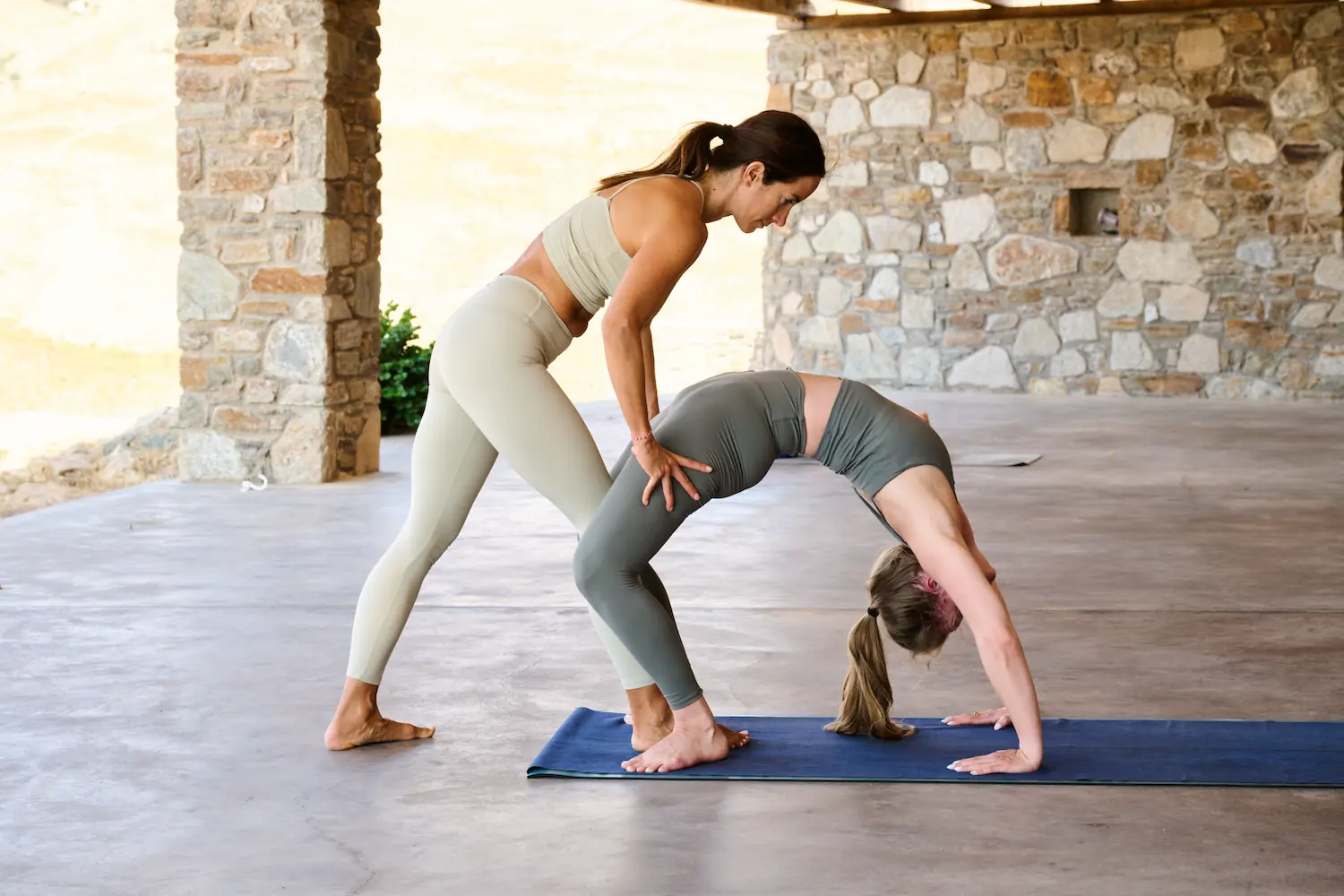Yoga has become extremely popular the last few decades. There is an abundance of studios, classes, retreats and workshops out there.
What has become even more popular is teaching Yoga. Social media has undeniably contributed to that by showcasing all the shiny aspects of being a Yoga teacher. As a result, the numbers of people enrolling in teacher trainings are increasing year after year. In big cities, every other person you meet claims to be teaching Yoga - although for most of them it’s more of a hobby than a profession.
With so many teachers at your disposal, how do you find the right one?
Sadly, for many students, it is almost irrelevant who is teaching them. They see Yoga as a mere workout. Therefore, the person who leads the class is easily interchangeable.
But for those who take their practice seriously and are eager to learn and go deeper, it can be quite difficult to find the right guidance, especially if they don’t know what to look for.
Here are some questions you should ask your potential future teacher (yes, you’re allowed to ask!) and things you should watch out for:
1. Do they have a personal practice?
This is the first thing I would want to know if I were to choose a teacher: Do they make their personal spiritual practice - their Sadhana - a priority?
You cannot pour from an empty cup. You can only give and teach others what you first give and teach yourself. You can only gain insights by practicing on your own, day after day, by continuously studying and growing. Only like that you can become a guiding light and a source of inspiration for your students.
I know many teachers who compromise their own practice to be able to teach more. It almost always backfires. It shows in their way of teaching — they are somehow disconnected from the practice and lack the depth and maturity that comes from committed Sadhana. And the students can sense it.
Choose a teacher who puts their own Sadhana first, even if this means they teach fewer classes. Only then will they be able to serve you in a genuine way.
2. Who is their teacher and what is their lineage?
This is extremely important. The notion of “Parampara” is one of the cornerstones of how Yoga is being taught in India. Parampara means direct transmission of knowledge from Guru (teacher) to Shishya (student). This transmission happens over several years of devoted study under the guidance of the same teacher. It certainly doesn’t happen in teacher trainings where absolute beginners are accepted and handed a certification after 200 hours of studying under someone they have never met before — and will most likely never see again.
So before you decide to study with a teacher, always ask who their teacher is and how long they’ve practiced under their guidance. This will give you an idea about the authenticity of the teachings you’re about to receive.
Ideally, choose to practice with someone who had an Indian teacher and has studied in India for at least a few months. This doesn’t mean Western teachers are not good. But the closer you get to the source, the truer and more authentic the teachings. Also, if your teacher made traveling to India to study a priority, it means they are serious enough about their education to put aside time, money and energy to make it happen.
In a day and time where so many people aspire to become Yoga teachers because it’s considered a "cool thing to do", choose someone who’s doing it out of real love and thirst for knowledge, not just because it’s popular.
Choose a teacher who respects the roots of Yoga and honors them through their own education.
3. Are they patient and compassionate? Are they teaching from the heart?
To be a good Yoga teacher, asana skills are not enough. One needs to be — first and foremost — a compassionate human being. They need to have the capacity to deeply care about every single student, to have an unshakable willingness to help them grow through the practice.
An intuitive and creative teacher will always find a way to connect with their students and meet them where they are. They will not only care about the gifted ones, but also look after the ones who struggle. They will be encouraging and won’t stop believing in their students, regardless of their limitations. They will treat everyone with the same love and respect.
Choose a teacher for whom teaching is not just a job but a life calling.
4. Do they respect boundaries — or does ego get in the way?
That’s a tricky one. Abuse of power and ego games are not foreign to the Yoga community. We’ve all heard of teachers who took advantage of their students' trust in one way or another. It’s sad but it’s a reality: having many people look up to you can inflate your ego and the consequences can be extremely harmful.
Abuse of power doesn’t have to be extreme to be acknowledged as such. Receiving a strong and injurious adjustment - despite telling your teacher you didn’t want to be pushed that day - is clear abuse of power in my opinion. Sadly, it happens more often than we would like to believe.
Remember: no matter how much you admire your teacher, no one knows how you feel better than yourself. And no one should pretend they do.
Choose a teacher who is there to serve the students, not their ego.
5. How do you feel in their presence?
Always listen to your gut feeling. How does this teacher make you feel about your practice? Do they motivate you to reach further and go deeper? Do you feel appreciated and accepted for who you are? And most importantly: do you trust them? Do you feel safe, seen, being taken care of? Do you feel empowered?
And don’t let fame fool you. Famous teachers with large followings are not always as good as you would expect them to be. Sometimes it’s all about strong personal branding and charisma. Not everything that shines is gold.
So, if you haven’t found someone who really inspires you yet, keep looking. And if you have, cherish the immense blessing of having a teacher you trust.
It’s rare, it’s beautiful and it will change you forever.





